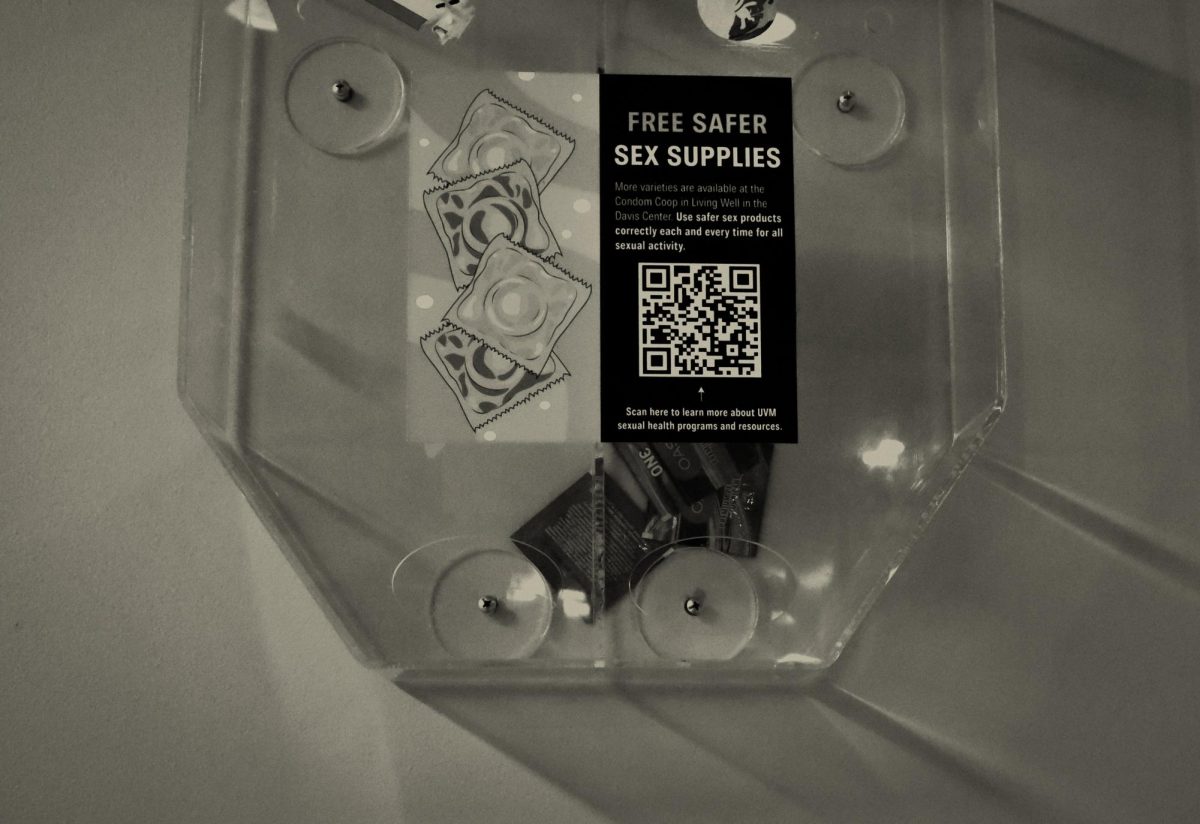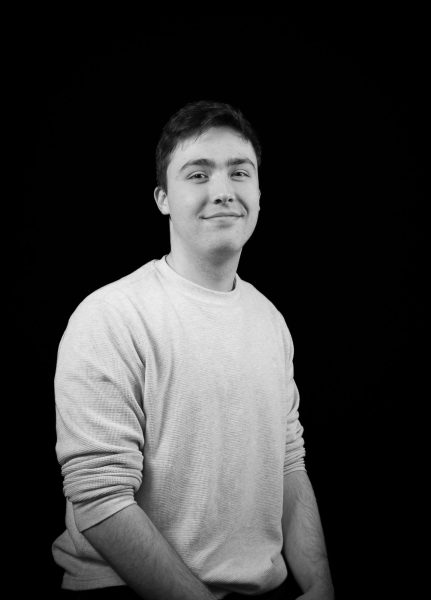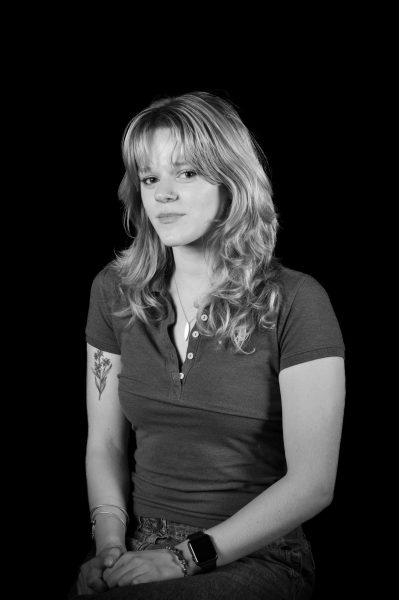From depleted condom dispensers to the end of Sex Ed Office Hours, positive sexuality programming at UVM has suffered following a slew of cuts to Living Well, said Erin Kelley, a senior who was involved with the department.
The shifts come after the University terminated a majority of its Living Well department on June 17, according to a June 24 Cynic article.
The cuts were part of a restructuring of the Center for Health and Wellbeing, whose Education and Outreach arm was reorganized to increase student access to clinical care, the article stated.
“When I think about all that we lost, myself personally and as a broader UVM community, it feels like a punch in the chest,” Kelley said. “I still have a lot of grief about it.”
Kelley, who planned to be an intern Living Well this semester, said sexual health resources have been less visible on campus this semester. Programming like the Living Well zine library, Sex Ed Bingo and SEXPO, a sexual health fair organized by Living Well employees, are completely gone, she said.
“I have friends who told me that they would have had unprotected sex without some of these resources or the condoms they got from the condom dispenser in Davis,” Kelley said.
Jennifer Shasberger, marketing coordinator for CHWB, said the department is planning on continuing SEXPO in the spring, and that Sex Ed Bingo is a program typically run by the UVM Program Board.
“Probably a couple of the [condom] dispensers were a little bare for the start of the semester, but it’s totally on our radar as something that needs to be maintained,” Shasberger said.
The coordination of these services and events fell on Living Well employees whose positions were terminated over the summer, like Jenna Emerson, a former health and sexuality educator, Kelley said.
Emerson declined to comment or provide a statement.
Blake Reilly, executive director of CHWB, said that while Emerson’s position no longer exists, his department is committed to reducing barriers to care and increasing communications with students.
“It’s really about getting in front of students and trying to make these services more accessible,” he said. “It’s great to have named positions, and it’s also great to expand the number of services that we can offer to students and do that upstream work.”
Reilly said that while positive sexuality programs are no longer being offered, CHWB healthcare providers are willing to help create any programming that students request.
“We’ve, in a way, expanded the menu of options, because we’re not so laser focused on specific items,” he said. “We’re trying to elevate student voices rather than just make the playbook ourselves.”
Kelley said one of the consequences of the CHWB reorganization was the end of The Good Stuff, a student-led discussion group that focused on the “good stuff” about sex.
The group, which reached its climax in the spring, held weekly meetings in which students facilitate conversations about sex in a positive light, Kelly said. Topics ranged from the history of BDSM to sex around the world to ethical porn, she said.
“It fell apart this semester pretty much entirely,” said Kelley, a former member.
Reilly said he was not aware if The Good Stuff was currently operating or not.
“I’m not sure if that’s happening currently, but if there are students who want it to happen, we’ll make it happen,” he said.
Kelley said she was unaware of this stance and that no one from CHWB reached out to The Good Stuff’s members.
“That’s all well and good, but if you don’t tell people that they can come, people don’t think they can come,” she said.
Kelley is part of a preliminary effort to create a new positive sexuality club, which she said will be called “Sex-Cetera.”
“We’re thinking about how we can do it again next semester, but we’re also thinking about all ways in which it’s going to be different,” she said. “We don’t have a fountain of knowledge at our fingertips or sitting next to us in a circle.”
While The Good Stuff was always peer-led, Living Well staff like Emerson would sit in on meetings and provide expertise on certain topics, Kelley said. This time around, it will be completely student-run, she said.
“We’re doing this group again,” Kelley said. “We’re trying, but we’re not collaborating with Living Well anymore because, how would we know? All of the staff we knew are gone.”
The June reorganization left many positions vacant within CHWB and the department is still figuring out the best way to communicate with students, Shasberger said.
“My job is communication, so I guess that’s kind of on me,” she said.
Ray Bauman, a senior and former member of The Good Stuff, said he was frustrated with the response from CHWB.
“There’s a lot of stigma around [sex] education and talking about that kind of stuff openly,” Bauman said. “That can make it a lot harder for students to reach out and say ‘I need support with this, I need a community where we can talk about this openly.’”
Bauman said he hasn’t stepped foot in Living Well this semester.
“It was so much made by the staff that I knew and was comfortable being around,” he said. “I don’t really feel the need to check out their new programming.”
As part of the reorganization, CHWB is providing more sexual health care through clinical services, Reilly said. Sexual pleasure is important from a clinical care standpoint, said Sharon Glezen, a physician at Student Health Services.
The question is especially pertinent for transgender people, as certain medications can significantly affect sexual function, Glezen said. SHS has not shifted their position on gender-affirming healthcare services since the Living Well shakeup in June, she said.
“Every year we’re seeing more and more students who are interested in accessing gender-affirming care,” she said. “I think that UVM is known as a place where that care can happen, and that makes me proud.”
Glezen said that SHS, Counseling and Psychiatry Services and the Office of Equal Opportunity would all work to provide sexual health services to students. None could speak towards sexual pleasure as well as Emerson, she said.
With the June cuts, the Living Well community not only lost institutional knowledge but a budding community of sex educators, Kelley said.
“We didn’t even always talk about sex-ed,” Kelley said. “Jenna was a broader mentor and inspiration than that, and the relationship [with Living Well] has changed. She was leading wildly successful programs while building community.”










